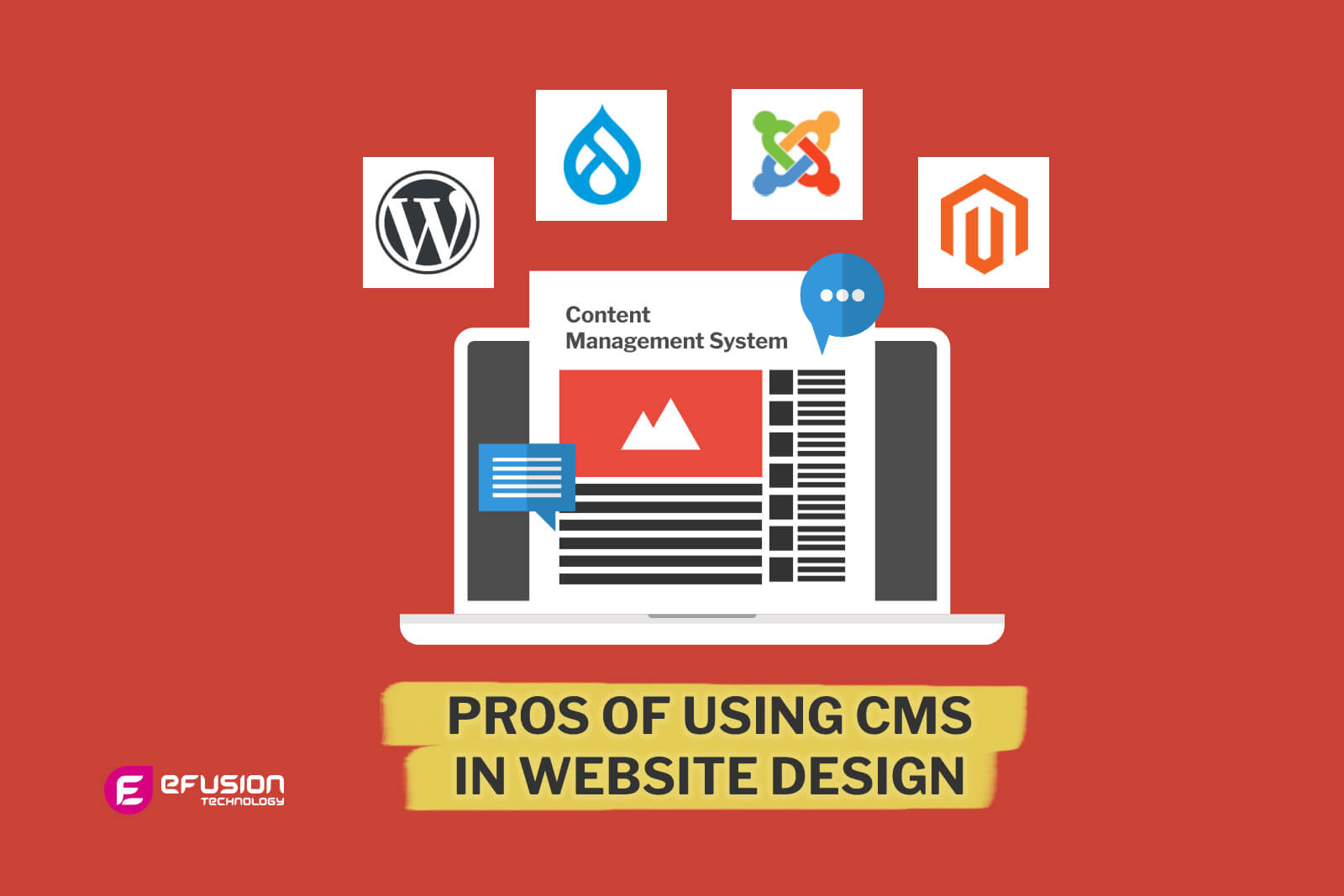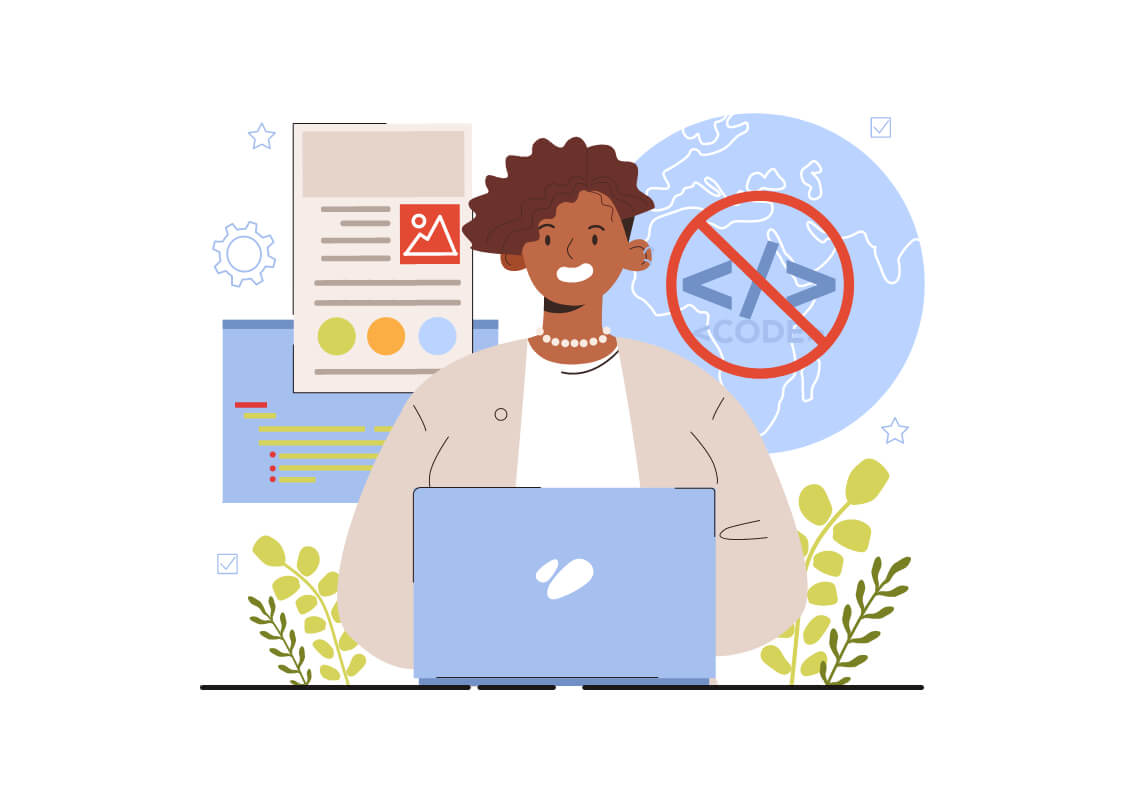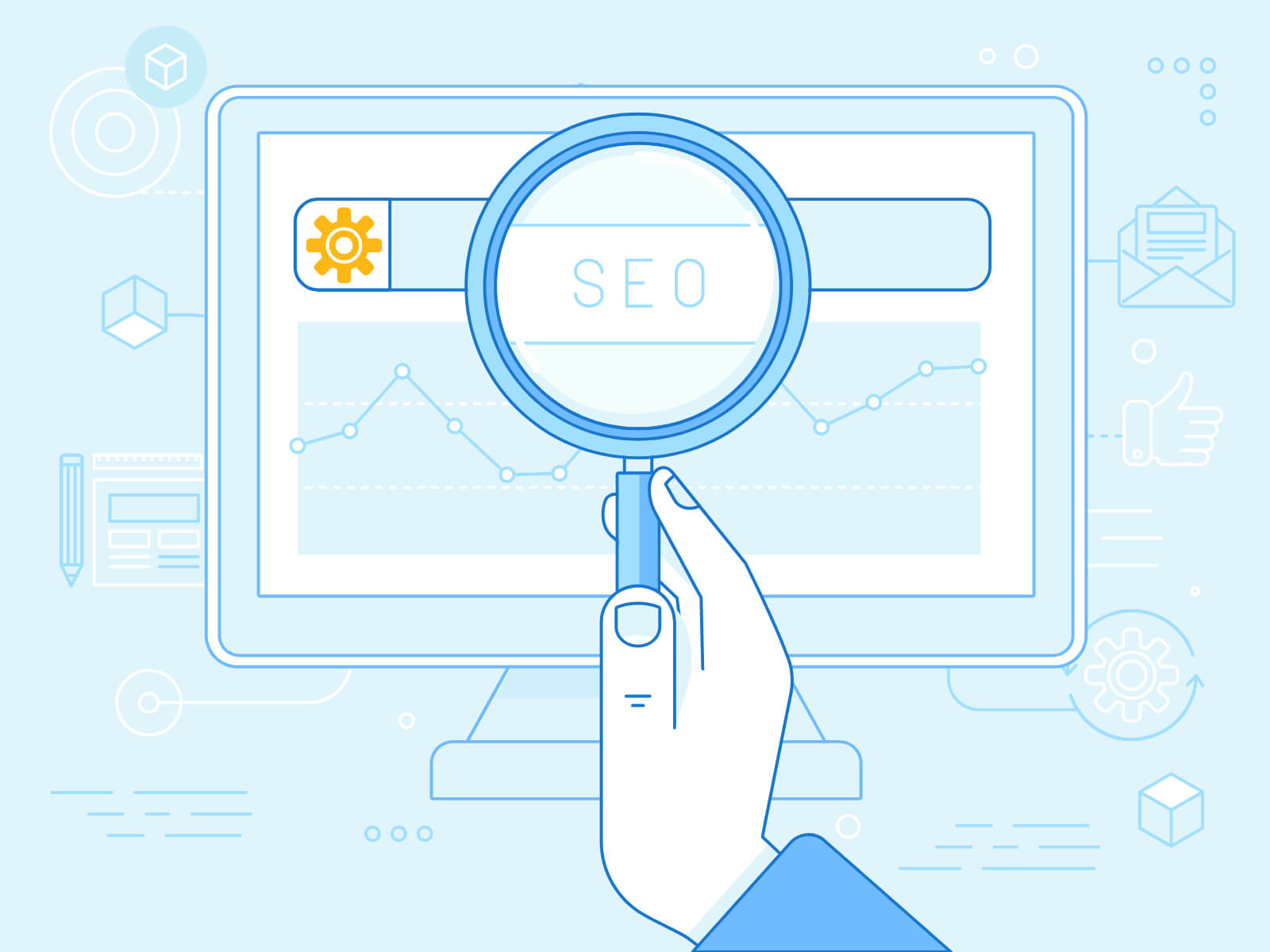
The arena of website design has undergone a lot of changes in recent years. What used to be a niche of tech-savvy developers now is within the purview of any generic user. CMS is widely employed by companies worldwide. Research indicates that around 73 million websites are built with CMS tools. As of 2021, only 36% of websites are hand-coded.
If you are interested in website design, read on to find out what a CMS is and how it helps in web design. Let’s dive in.
What is a CMS?
CMS expands to Content Management System. It is a software application that helps you build, manage, and maintain your website with little or no coding skills.
A CMS lets you edit, modify, manage and publish content on your website with user-friendly interfaces. You can use various templates and extensions to customize certain designs and functionalities of the site with no code. Multiple users can work on the backend of the CMS simultaneously.
Some examples of CMS tools include Drupal, Joomla, WordPress, Hubspot, and Magento.
CMS role in website design
While CMS offers multiple benefits to aid in website development and maintenance, some of the primary ones are:
1) No Coding required

Content management systems have revolutionized web design by reducing the dependency of businesses on developers to build websites. Now, even with no coding skills, non-technical users can conveniently create websites.
CMS typically use intuitive drag-and-drop page builders that allow you to visually craft a page with no coding involved. You can customize the design, manage and publish content on your website, and quickly build your online presence.
CMS platforms have brought website development and design within the scope of non-technical users.
2) Easier Collaboration
A website design project involves multiple teams with diverse roles and responsibilities. You can’t wait for one team member to complete a task before beginning the next one. With CMS, multiple users can work simultaneously on different tasks on the backend. This builds collaboration among the teams and lets tasks be completed much quicker.
CMS enhances the productivity and efficiency of teams through collaboration.
3) Easy Access

The platform enables you to access your website from any device, regardless of laptop, tablet, or smartphone. You can make changes or edits anywhere and it would reflect everywhere. In addition, CMS offers a single dashboard from where you access all functionalities – plugins, themes, content, settings, and more.
Thus, these tools also enable easier access which makes the website responsive.
4) User Roles and Permissions
CMS provide an excellent way to manage team collaboration through defining the user roles and permissions. This lets you grant appropriate permissions to different users.
For example, a content editor could have write and edit permissions while a site administrator might have additional permissions to delete plugins too. Team members could each complete their tasks without worrying about accidentally messing up your website.
5) SEO Features and Extensions

CMS also offers various built-in features and add-ons to optimize your website for online presence. Using built-in or external tools, you may optimize page load time, add image text, customize page titles and meta descriptions, and more. Thus, it enables SEO functionality to your website.
The tools incorporate SEO attributes into your website design, making it search-engine friendly.
6) Pre-built templates
Most CMS tools come with an array of reusable design templates that can modify the appearance and even behavior of your website. You could save time by simply customizing the templates instead of coding a design from scratch. Besides saving time in website design, they also provide simpler and wider choices for a website redesign.
CMS software’s pre-built design templates make website design a fun and awesome experience.
7) Security Features

These platforms secure your website through specialized control features. Some CMS platforms provide 24/7 dedicated support to fix any issues.
8) Simple Updates
CMS makes you self-reliant by letting you make updates on your own.
The no-code feature of CMS means you could quickly edit a section of your website, like changing a text, through the CMS backend menu. Previously, businesses had to depend on freelancers to write the code for running these simple tasks. However with CMS platforms, all these can be done by any non-technical user with appropriate permissions. CMS tools make website edits and update an absolute breeze.
Content Management Systems (CMS) allow a wide variety of benefits with regard to website design and management, the primary ones are discussed here. There are lots of CMS providers out there to explore so simply choose one that fits your needs.
Looking for website design service in Singapore? Now that you know the importance and role of CMS platforms in website design, you are just a step away. Contact eFusion Technology today for the best-in-class web design in Singapore.

